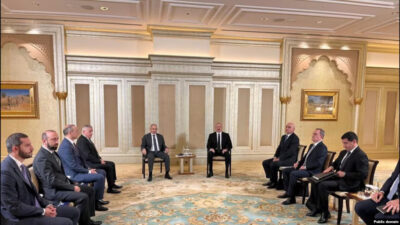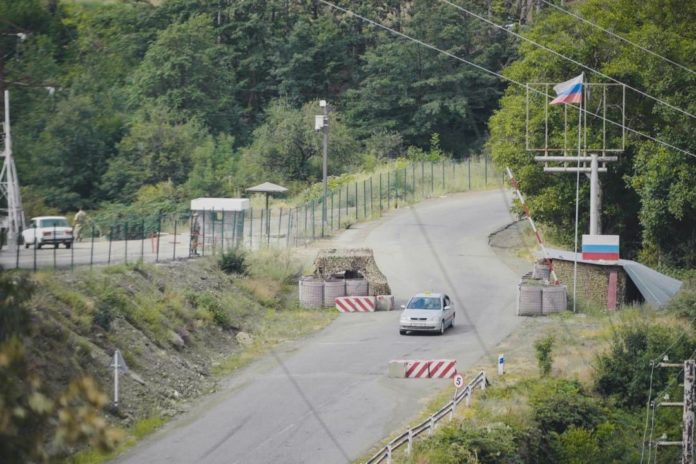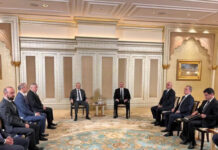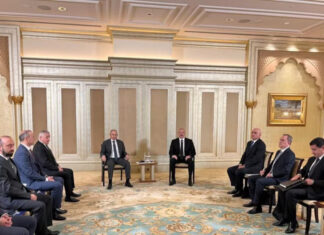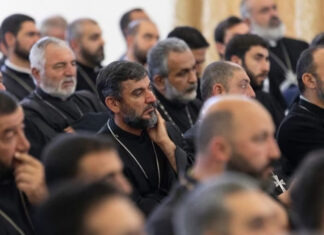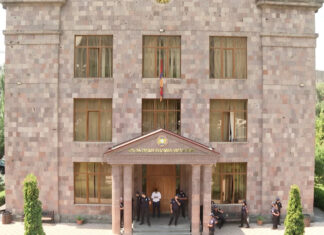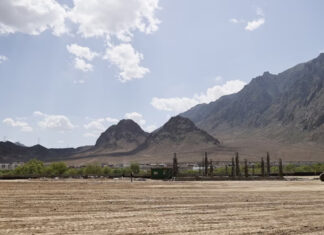By Heghine Buniatian
BRUSSELS (RFE/RL) — By escalating the situation in and around Nagorno-Karabakh Azerbaijan pursues three goals that it wants to achieve either by force or the threat of force, which it hopes will pressure Armenia to capitulate in negotiations, an international think tank says in its latest report on the region.
In its report titled “Warding Off Renewed War in Nagorno-Karabakh” that was published this week the Brussels-based think tank International Crisis Group (ICG) goes on to list what it views as these three goals that have to do with the overland connection between Nagorno-Karabakh and Armenia known as the Lachin corridor, the withdrawal of Armenian troops from the region as well as a treaty with Armenia to end the conflict that would be to Azerbaijan’s advantage.
The report quotes an unnamed Azerbaijani official as saying that “the Armenian side is trying to delay the commissioning of the new road this year, thereby purposely delaying the handover of the city of Lachin and a number of villages to Azerbaijan.”
Azerbaijan’s second grievance, according to ICG experts, relates to what Baku says is Armenia’s failure to withdraw forces from Nagorno-Karabakh, as the ceasefire says it must do. “Yerevan says it has done so. The issue, it says, is Azerbaijan’s concern that Nagorno-Karabakh’s de facto authorities retain an armed force. Baku argues that this force is illegal, demanding that Russian peacekeepers disarm it, while Armenia and the de facto authorities say its disarmament was never part of the ceasefire deal,” the report says.
“Baku seized upon comments Armen Grigoryan, Armenia’s Security Council secretary, made in an interview in mid-July that Armenia would withdraw forces by September as evidence of its claims. Yerevan has since furiously tried to walk back words it says were taken out of context,” writes the ICG, noting that Armenian Prime Minister Nikol Pashinyan reiterated on August 4 that all Armenian armed forces have left Nagorno-Karabakh.
